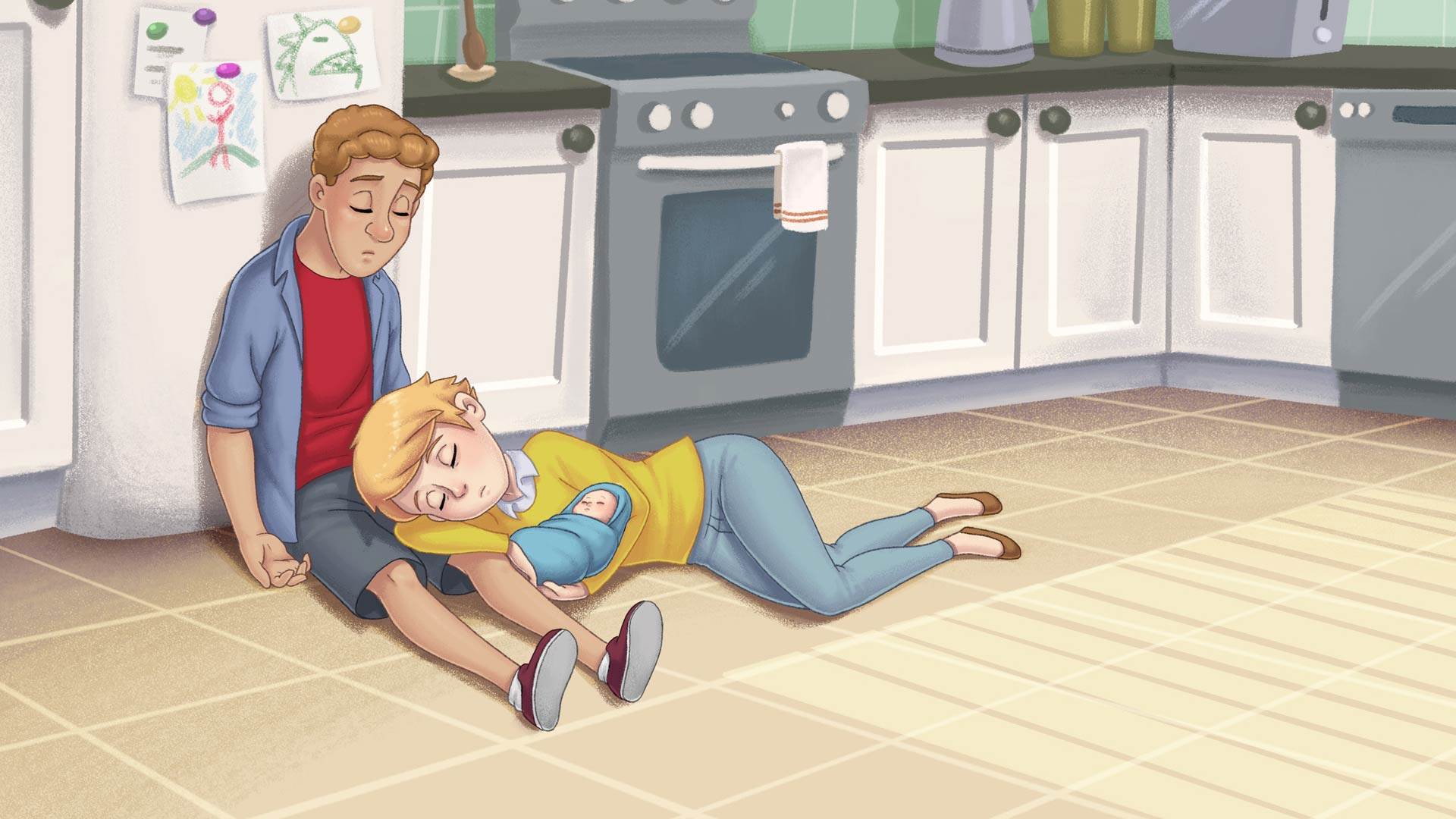From the moment your baby is born, they no longer receive nutrients through the umbilical cord. They will instead need nutrients initially from milk and then at around six months, also from solid food. It is important for a child to have an appropriate diet for growth and development at every stage of their life.…

Co-sleeping
Fast facts
- Co-sleeping is the name for sharing a sleeping area with your baby. It is the most common sleeping arrangement in the world.
- Co-sleeping can mean sharing a bed, or sharing a room (where you and your baby sleep on different surfaces in the same room).
- Co-sleeping can have many advantages, including quicker and easier access to the baby, less anxiety and 'fuss' when baby wakes or is hungry, and better sleep for parent and baby.
- In some situations, co-sleeping can pose a safety concern.
- In the end, it is up to the individual parent to make their informed decision.
Anxiety
A feeling of tension, nervousness and dread about future events. It can trigger physical symptoms such as a rapid pulse or breathing difficulties.
What is co-sleeping?
Co-sleeping is sharing a sleeping area with your baby. It can include sharing a bed, or room sharing (where you and your baby sleep on different surfaces in the same room).
Co-sleeping is the most common sleeping arrangement in the world. In current Western society co-sleeping is less common, though it has become more popular in recent years. Most parents co-sleep with their babies at some point, for some time.
Co-sleeping can be a controversial subject, with advocates pointing to the benefits of the practice, while detractors cite safety concerns. In the end, it is up to the individual parent to make their informed decision.
 Bed sharing and room sharing are two forms of co-sleeping with your baby.
Bed sharing and room sharing are two forms of co-sleeping with your baby. Benefits
Advantages of co-sleeping include:
- Reduced anxiety levels for baby and parent;
- Quicker access to the baby, so that soothing or feeding can be done while the baby is still stirring and has not completely woken up. This can result in better sleep for parent and baby;
- Makes breastfeeding easier;
- Less need for 'fuss' (entering the child's room, turning on a light, making noise, etc.) when baby wakes;
- The closeness of bed sharing helps the infant's body regulate their breathing, body temperature and heart rate, and;
- Co-sleeping can help form stronger emotional bonds between baby and mother.
Anxiety
A feeling of tension, nervousness and dread about future events. It can trigger physical symptoms such as a rapid pulse or breathing difficulties.
McKenna, J.J. and McDade, T. (2005) Why babies should never sleep alone: a review of the co-sleeping controversy in relation to SIDS, bedsharing and breast feeding. Paediatric Respiratory Reviews 6:134–152.
Disadvantages
- The main disadvantages of co-sleeping are safety concerns (see 'Safety', below), and;
- For some parents, sharing a sleeping space with a baby is not a comfortable sleep arrangement and makes intimacy between couples more difficult.
Safety concerns
It is not yet clear whether a baby sleeping in a bed with a parent does indeed increase the chance of sudden infant death syndrome (SIDS). However, it is clear that the risk is increased in the following situations:
- Co-sleeping on a sofa, couch or chair;
- Bed sharing with a parent who is under the influence of alcohol or medications;
- Bed sharing with a parent who is very tired;
- Bed sharing with a parent who is a smoker, or;
- Bed sharing with a person who is not a parent (such as a sibling).
Room sharing has been shown to protect against SIDS.
For more information on SIDS and safe infant sleep positions, see our SIDS page.
Blair, P.S., Sidebotham, P., Pease, A., et al. (2014) Bed-sharing in the absence of hazardous circumstances: is there a risk of sudden infant death syndrome? An analysis from two case-control studies conducted in the UK. PLoS ONE 9.
Carpenter, R., McGarvey, C., Mitchell, E.A., et al. (2013). Bed sharing when parents do not smoke: is there a risk of SIDS? An individual level analysis of five major case–control studies. BMJ Open 3:e002299.
SIDS and other sleep-related infant deaths: expansion of recommendations for a safe infant sleeping environment. (2011) Pediatrics 128:e1341-1367.






